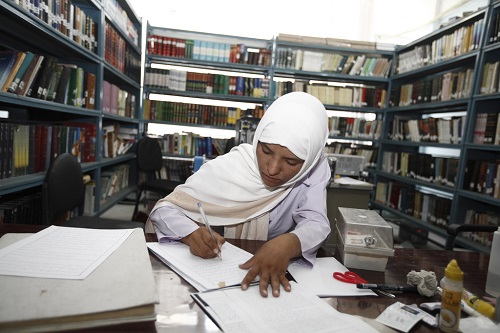Sandra Calligaro photo
By
Bikash Mohapatra
…is a topic where the disconnect is maximum. When this is discussed the talk is usually about solutions that are investment oriented. However, it is not actually about investments but attempting to get solutions from within society, a university-community engagement so to speak.
The institutes providing higher education play a crucial role in shaping the overall development of a community/country.
It is a fact that strong economic growth in a country owes a lot to a Knowledge Economy (rather knowledge-based economy), one where the country invests significantly in community-based research and development.
In such a scenario it becomes imperative for institutes providing higher education (universities et al) to get involved in community outreach-based research to contribute to a strong knowledge-based economy in their respective countries.
These outreach programs also serve as a catalyst in endearing these institutions of higher education to their adjoining communities, a university-community engagement so to speak.
However, it is also a fact that outreach in higher education is a topic where the disconnect is maximum. Normally when this topic is discussed, the talk is usually about solutions that are investment oriented.
It is not about investments but about changing the mandate, about attempting to get local solutions from within the society.
“Societal outreach requires engaged stance for teaching, research and service. If social outreach becomes ghettoized then engagement won’t happen,” argues Dr Rajesh Tandon, Founder-President, UNESCO Chair in Community Based Research & Social Responsibility in Higher Education.
What then is the relevance of social outreach in education?
“It’s crucial,” explains Andrea Vargiu, Associate Professor, Department of Human & Social Sciences, University of Sassari, Italy.
“And it is mainly owing to three reasons,” he continues, proceeding to elaborate on his point.
“The first is the fact that universities are institutions/organizations that want to survive. “That they can only if they adapt to change, or for that matter drive change. “My university, for example, shut down twice but recovered simply because the civil society wanted it back. That proves that the most reliable partner is not the market, but the civil society.
“Secondly, it is a collective utility role. Every university has certain social responsibility. The concept of Knowledge Society (or Knowledge Economy) is based on the fact that the nature of the services that that universities deal with is aimed at common good.
“A university is not an economic commodity. It has no rivalry to contend with. There is no exclusiveness. Knowledge is also empowering. Those who own it can share it and generate collective value.
“Third, if you want to succeed you have to identify the features specific to your context, combine them together and align them as well.
“How can I engage my students and make an impact? How can I ensure sustainability of resources?
“The answer to these questions lies in the coming together of three factors: Combination + Optimization + Alignment.”
Dr Das, who manages a consultancy that offers services in various aspects of the education value chain, concurs with Prof. Vargiu’s three-point explanation.
“If a ‘mentoring the mentor’ relationship can be built with the Non-Governmental Organizations (NGOs) at the ground level then social outreach in higher education can be maximized,” he avers.
However, as things stand, while millions are being spent on higher education the community remains oblivious to its impact.
The challenge therefore, is for these institutions imparting higher education to find new and effective ways of developing and applying knowledge for the societal well-being. It is this university-community engagement that will ensure a successful implementation of the outreach mission of higher education, one that will benefit all the parties involved.
Bikash Mohapatra
A firm believer in the adage ‘variety is the spice of life’, New Delhi-based Bikash Mohapatra has been a human resource manager, a communication specialist, a strategist, a media professional and a researcher/writer at various stages of his career, acquiring a new set of skills with every additional responsibility.
Outside of work he is an avid traveler, with an innate desire to learn about various people, places and cultures. It is this ‘travel education’, coupled with varied ‘professional experience’ that manifest into thoughts and take the shape of detailed and elaborate narratives.



No Comments Yet!
You can be first to comment this post!